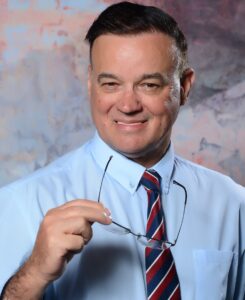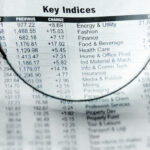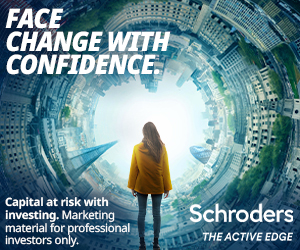As fiduciaries, our role extends beyond product advice or portfolio performance. We are, in essence, stewards of our clients’ legacies – charged with navigating them through uncertainty while honouring their values, families and future.
Environmental, Social and Governance (ESG) is not a tick-box exercise or a flavour-of-the-month theme. For me, ESG is about meaningful alignment between our clients’ investments and their broader life story. It’s about legacy. It’s about sustainability in the
deepest sense – not just market sustainability, but personal sustainability.
The world has changed. Climate events have become more frequent. Inequality remains deeply entrenched, particularly here in South Africa. Governance failures – from state capture to corporate scandals – have eroded trust across institutions. Clients are no longer asking if their money is making a difference. They’re asking how.
A growing number of my clients – particularly the next generation of professionals and business owners – want to invest in a way that reflects their beliefs. They want their financial plans to “do no harm” and, ideally, “do some good”. They ask whether their portfolios support clean energy, their retirement savings avoid extractive industries and if their corporate structures align with ethical tax planning.
We cannot ignore these questions. ESG is a fiduciary imperative.
South African ESG context
In our market, ESG brings its own unique challenges and opportunities. South Africa’s just energy transition is not only an environmental concern, but also a social and economic one. Unemployment, energy insecurity and structural inequality create complex trade-offs.
This is where local expertise becomes vital. It’s not just about applying a global ESG filter. It’s about contextualising impact. For instance, a mining company with strong local empowerment credentials and carbon transition plans may offer more ESG integrity than a foreign-listed green fund with little social footprint here.
ESG requires due diligence, not default settings. It means understanding what each client values and matching that with real-world, measurable outcomes.

ESG and fiduciary duty
Some advisors fear that ESG compromises returns. The data says otherwise. Multiple studies – including work by Morningstar and MSCI – show that well-constructed ESG portfolios deliver comparable or even superior risk-adjusted returns over the long term. Beyond performance, ESG speaks to the core of fiduciary duty: to act in the best interests of the client. And best interests today include ethical alignment, intergenerational fairness and long-term risk mitigation.
In fiduciary planning, we talk about protecting legacies – trusts, wills and business succession. ESG simply extends that thinking. What kind of world will our clients’ grandchildren inherit? Will their investments reflect the values they shared around the dinner table? Will their wealth preserve ecosystems, uplift communities and reward transparency?
Practical steps for planners
So how do we integrate ESG meaningfully into our advice process?
- Start with values-based conversations. Don’t jump straight into selling products. Ask what matters. Many clients have never had the space to connect money with meaning.
- Use independent ESG research. Filter beyond marketing material. Tools like Sustainalytics or local ESG rating providers guide product selection.
- Evaluate fund mandates. Look for fund managers with clear stewardship records.
- Incorporate ESG into compliance checklists. Include ESG as part of your record-keeping and client review process.
- Collaborate across professions. ESG touches tax, estate, legal and insurance planning. A multi-disciplinary view strengthens outcomes.
Financial freedom is not just a goal – financial freedom is a journey. ESG ensures that this journey is not only profitable, but purposeful. Let’s ensure that when our clients build wealth, they also build a world worth living in.













